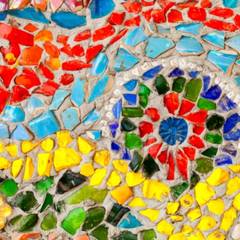ben's d'var torah - parshat Beha'alotcha
02/08/2023 07:26:09 PM

My portion ( Beha’alotcha ) is from chapter 8 verses 1-12 the book of Numbers, which is the fourth book of the torah. The name means the mounting of the menorah. Some of the things that happen in my Torah portion include how to create the seven branch menorah and how to light the candles on the menorah - an important ritual object in the Tent of Meeting, which was the mobile version of the temple used while the Isrealites were in the desert. It also talks about who the Levites were and why they were so important to the Tent of Meeting. In addition there is a section about how G-d responded to the complaints that the Isrealites had about having to eat Manna everyday. While this is all going on, Moses complains to G-d about how difficult it is for him to manage everything himself and G-d suggests forming a group of elders to help.
Although there is a lot going on in my portion, I was particularly fascinated by the Tent of Meeting and how the Israelites carried a temple with them through the desert. Each time they moved through the desert on their way to the promised land, they had to take the tent apart, move it, and then reassemble it when they got to where they were going. They weren’t just moving a tent you would go camping with, they were moving a very big tent with lots of ritual items, including the menorah, and different materials that helped to build the tent. This was very difficult and I wondered how they were able to accomplish this.
I discovered from last week's Torah portion Nasso that G-d took care of this by assigning different tasks to different members of the Levite tribe. Some carried the linen material that created the outside walls of the tent of meeting, some carried the poles, some carried the ritual objects, like the menorah, and some carried the ark. G-d picked the Levites to do these tasks because of the trust they developed with him. When Moses left for 40 days to go get the ten commandments on Mount Sinai. All the other tribes started to worship a golden calf. The Levites would not participate in this. They decided it was more important to maintain their faith in G-d. As Rabbi Ibn Ezra says the Levites were like everyone else until Moses’ ascent to Mount Sinai when they became special because of their faith in G-d.
What this meant was that they had the job of maintenance and moving the tent of meeting. They were responsible for staffing the tent and keeping it a beautiful place. They lived there and lived off of donations and offerings from the Isrealites. Later on when the permanent temple was destroyed in Jerusalem by the Romans in the year 70 CE, it left the Levites without jobs and a home. Eventually they assumed a role within each synagogue during the Torah service and were given special Torah honors.
The tent of meeting played a very important role in Biblical history. It was both physically and spiritually the center of the Jewish encampment. Much like how our synagogues are today. I think this speaks to the everlasting importance and need of having a place for Jews to congregate, study, pray, and celebrate. Like JCOGS- although we do have a tent- Where we’ll eat lunch soon. Unlike the tent of meeting in biblical times, we don’t have to move the sanctuary.
And unlike the tent of meeting where the Levites fulfilled all of the tasks surrounding the maintenance and management of it, we are all Levites here. We are all responsible for making sure that this synagogue is a functioning center of Jewish life in the Greater Stowe area. Now that I’m becoming a Bar Mitzvah I too will be responsible for assuming my role as a levite in this community. I will be joining my parents and grandparents who are all involved in making sure this community is a vibrant and welcoming place for the community to pray, study, and celebrate.
When I think about the tent of meeting I also relate it back to my own family. The tent of meeting symbolizes communities of trust and tradition which I feel is very similar to what I have in my life. I am very thankful to have a loving and supportive family. When I’ve needed them most or didn’t know I did they are always there for me. Our home, no matter where it is, acts for me as a tent of meeting and a place of trust, love, and tradition. Thank you Mom and Dad for everything.
Shabbat Shalom
